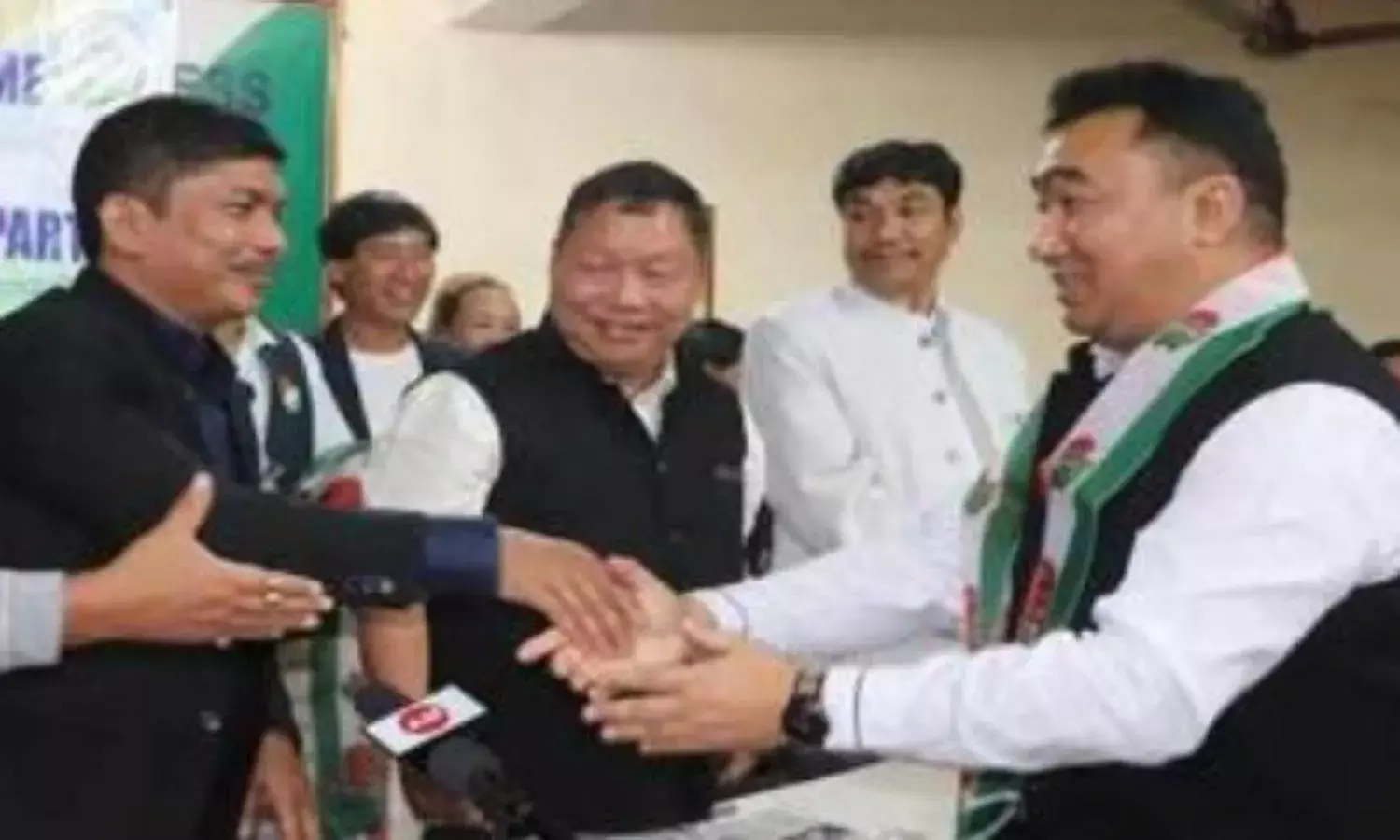Defections Muddy the N-E Electoral Landscape
#TCVotes Five years of constant defections

ITANAGAR: Party defections are endemic in the political landscape of Arunachal Pradesh. However, unlike in the past, the latest sets of defections began before the elections as many incumbent and aspiring MLAs found themselves being denied party tickets.
Anyone familiar with the political landscape of the state knows that party ideologies have little to do with party allegiances.
And reporting on it, keeping track of who has joined which party, which politicians have had a ‘change in ideology’ in the past five years, has been dizzying, to say the least.
When the results of the 2014 Legislative Assembly elections came out, it was the Congress that had won with a clear majority. Five years down the line, the state has had three chief ministers and as many political parties in power (four parties if you count allies).
The Congress had formed the government with Nabam Tuki as its chief minister but just a year later, a long-drawn internal political crisis began to unfold that saw the state briefly coming under President’s Rule and ending in mid-2016 when the chief minister’s post changed hands three times.
The Grand Old Party seemed to have averted a crisis and managed to hang on to power, making Pema Khandu the youngest chief minister in the country. Then in August of 2016, former chief minister Kalikho Pul committed suicide that prompted angry reactions from large sections of people who blamed the political class of betraying Pul.
Just a month later, 43 of the Congress MLAs joined the People’s Party of Arunachal (PPA), leaving Tuki as the lone legislator from the party that was originally voted into power.
Then a few months later in December of that same year, 33 PPA MLAs joined the BJP when there appeared to be a leadership crisis with Takam Pario looking to challenge Khandu. In July last year, seven PPA MLAs- Tanga Byaling (Nacho), Rajesh Tacho (Anini), Nikh Kamin (Bordumsa-Diyun), Tapang Taloh (Pangin), Mutchu Mithi (Roing), Tirong Aboh (Khonsa), and Dikto Yekar (Daporijo) -joined the National People’s Party (NPP). Note here that with the exception of Kamin and Aboh, none of the seven had won from the PPA in 2014 and both of them are contesting from different parties this year.
In September, Takam Pario, who had joined the PPA, and Markio Tado, who had joined the BJP, returned to the Congress. Earlier this year after the Election Commission declared the dates for the elections, Tado announced that he was making way for the BJP candidate in his constituency and would not be contesting the April 11 election.
Before the elections, Byaling too had returned to the Congress.
A look at the candidates’ list reveals that out of the 50 incumbent candidates who are re-contesting this year, 18 are doing so from the same parties that they had contested from last time. These include the 11 MLAs who had won in 2014 on the BJP’s plank, and former chief minister late Kalikho Pul’s wife Dasanglu Pul, who was elected from the Hayuliang constituency in the 2016 by-polls on a BJP ticket.
The other six returning candidates contesting from the same party are from the Congress- Tanga Byaling, Wanglin Lowangdong, Takam Pario, Tapang Taloh, Lombo Tayeng, and Nabam Tuki. Of these six, only Tuki had not changed his party midway through these last five years
These are just the incumbent MLAs and not other long-time party members who had hoped for a ticket this time around but later filed their nominations from other parties when denied.
That’s a different article for another day.



